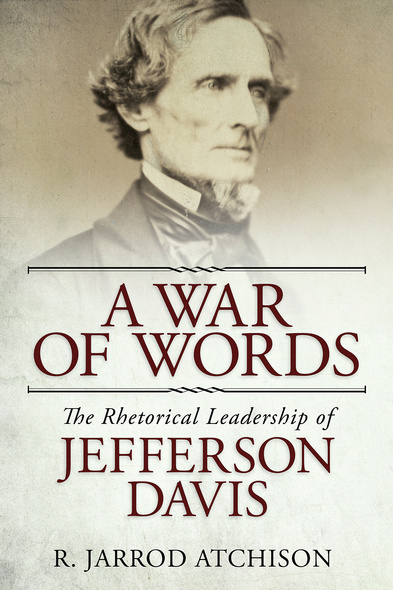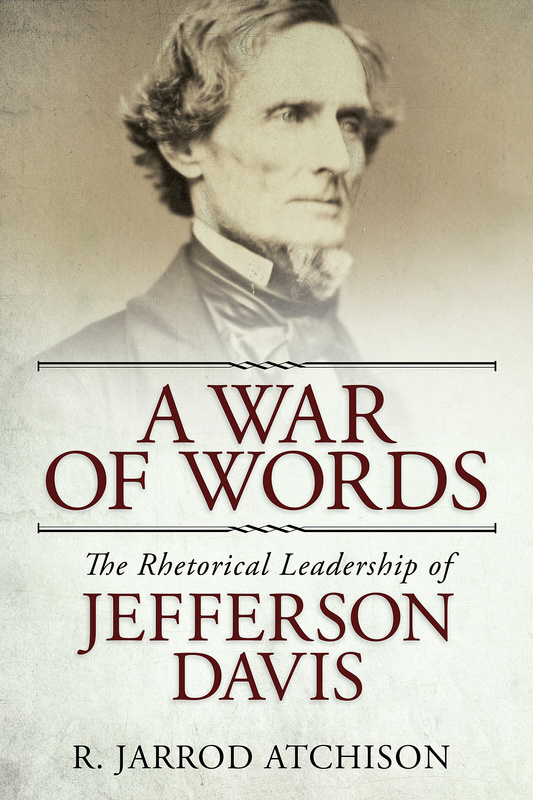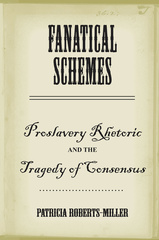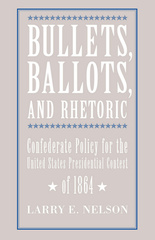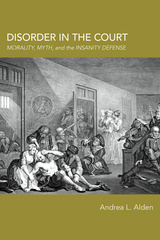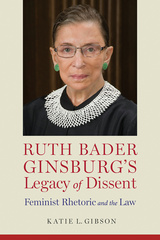A War of Words
The Rhetorical Leadership of Jefferson Davis
University of Alabama Press
A rhetorical analysis of Jefferson Davis’s public discourse
Numerous biographies of Jefferson Davis have been penned; however, until now, there had been no substantive analysis of his public discourse as president of the Confederacy. R. Jarrod Atchison’s A War of Words uses concepts from rhetorical theory and public address to help answer a question that has intrigued scholars from a variety of disciplines since the collapse of the Confederacy: what role, if any, did Davis play in the collapse of Confederate nationalism?
Most discussions of Davis and nationalism focus on the military outcomes of his controversial wartime decisions. A War of Words focuses less on military outcomes and argues instead that, in the context of the Confederacy, Jefferson Davis’s rhetorical leadership should have been responsible for articulating a vision for the nation—including the core tenets of its identity, the values the nation should hold dear, the principles it should never compromise, and the goals it should set for its future. Undoubtedly, Davis possessed the skills necessary to make a persuasive public argument. It is precisely because Davis’s oratory skills were so powerful that there is room to judge how he used them. In short, being a great orator is not synonymous with successful rhetorical leadership.
Atchison posits that Davis’s initial successes constrained his rhetorical options later in the war. A War of Words concludes that, in the end, Davis’s rhetorical leadership was a failure because he was unable to articulate a coherent Confederate identity in light of the sacrifices endured by the populace in order to sustain the war effort.
Numerous biographies of Jefferson Davis have been penned; however, until now, there had been no substantive analysis of his public discourse as president of the Confederacy. R. Jarrod Atchison’s A War of Words uses concepts from rhetorical theory and public address to help answer a question that has intrigued scholars from a variety of disciplines since the collapse of the Confederacy: what role, if any, did Davis play in the collapse of Confederate nationalism?
Most discussions of Davis and nationalism focus on the military outcomes of his controversial wartime decisions. A War of Words focuses less on military outcomes and argues instead that, in the context of the Confederacy, Jefferson Davis’s rhetorical leadership should have been responsible for articulating a vision for the nation—including the core tenets of its identity, the values the nation should hold dear, the principles it should never compromise, and the goals it should set for its future. Undoubtedly, Davis possessed the skills necessary to make a persuasive public argument. It is precisely because Davis’s oratory skills were so powerful that there is room to judge how he used them. In short, being a great orator is not synonymous with successful rhetorical leadership.
Atchison posits that Davis’s initial successes constrained his rhetorical options later in the war. A War of Words concludes that, in the end, Davis’s rhetorical leadership was a failure because he was unable to articulate a coherent Confederate identity in light of the sacrifices endured by the populace in order to sustain the war effort.
Atchison . . . reviews the possible role Jefferson Davis played in the failure of the Confederates. . . . The depth and complexity of this research is a remarkable achievement for a single author. . . . This book will be highly useful for scholars interested in the Civil War era and those who study American public discourse. Highly recommended.’
—CHOICE
'If you study Civil War Era politics, A War of Words deserves a place on your bookshelf.'
—Civil War Book Review
A War of Words explores an under-studied aspect of Jefferson Davis’s leadership, his ability (or lack thereof) to inspire and mobilize audiences through his crafting of rhetorical appeals. This book should be valuable to students of the history of American public discourse, scholars of the Civil War era, advanced rhetorical critics, and those interested in Southern rhetoric and public address.’
—David Zarefsky, author of Lincoln, Douglas, and Slavery: In the Crucible of Public Debate
‘Atchison does an excellent job of delving into how and why Davis’s speeches often failed to achieve their goals—and why Davis’s rhetorical aims were often off the mark and unsuccessful. Many of the author’s insights and evaluation of Davis’s rhetoric will help students of the Civil War era understand more about the context and history of the time, and, indeed, more about Davis himself.’
—W. Stuart Towns, author of Enduring Legacy: Rhetoric and Ritual of the Lost Cause
R. Jarrod Atchison is an associate professor of communications at Wake Forest University.
Acknowledgments
Introduction
Chapter 1. Decorum in Davis’s Resignation from the Senate
Chapter 2. Civic Republicanism in Davis’s Inaugural Address
Chapter 3. Amplification in Davis’s Defense of Conscription
Chapter 4. Conspiracy Rhetoric in Davis’s Response to the Emancipation Proclamation
Chapter 5. Pragmatism and Desperation in Davis’s Push for Conditional Emancipation
Conclusion
Notes
Bibliography
Index

